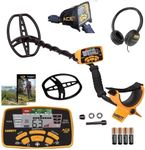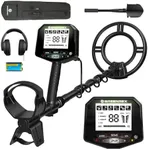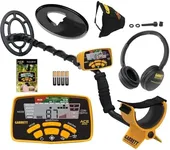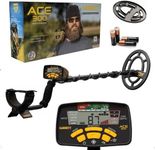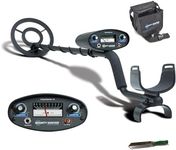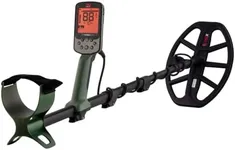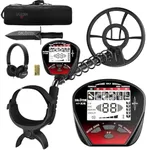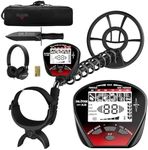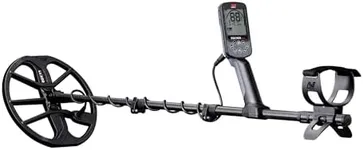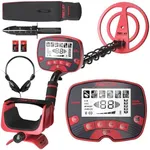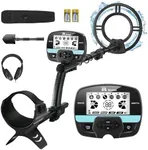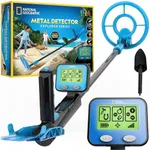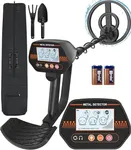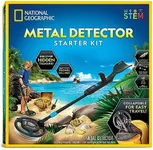Buying Guide for the Best Low Cost Metal Detector
Choosing the right low-cost metal detector can be a fun and rewarding experience, especially if you know what to look for. Metal detectors are used to find metal objects buried underground, and they come with various features that can affect their performance and ease of use. Understanding these key specifications will help you make an informed decision and find a metal detector that suits your needs and preferences.Detection DepthDetection depth refers to how deep the metal detector can sense metal objects underground. This is important because it determines how effectively you can find buried items. Detection depth can vary based on the size and type of the metal object, as well as the soil conditions. Generally, low-cost metal detectors have a detection depth of a few inches to a foot. If you are looking for coins or small relics, a detector with a depth of 6-8 inches should suffice. For larger objects, you might need a detector that can go deeper. Consider what types of items you are most interested in finding to choose the right detection depth for you.
DiscriminationDiscrimination is the metal detector's ability to distinguish between different types of metals. This feature is important because it helps you avoid digging up unwanted items like nails or bottle caps. Discrimination settings allow you to filter out certain metals and focus on more valuable finds like coins, jewelry, or relics. Low-cost metal detectors may have basic discrimination settings, such as a knob or a few preset modes. If you are a beginner, look for a detector with simple discrimination controls that allow you to easily switch between different modes based on what you are searching for.
SensitivitySensitivity refers to the metal detector's ability to detect small or deep objects. Higher sensitivity can help you find smaller items or detect objects at greater depths, but it can also make the detector more prone to interference from mineralized soil or trash. Low-cost metal detectors typically have adjustable sensitivity settings, allowing you to fine-tune the detector based on the ground conditions and the size of the objects you are searching for. If you are new to metal detecting, start with a moderate sensitivity setting and adjust it as you become more familiar with your detector and the area you are searching.
Coil Size and TypeThe coil is the part of the metal detector that senses metal objects underground. Coil size and type can affect the detector's performance. Larger coils can cover more ground and detect deeper objects, but they can be less sensitive to small items. Smaller coils are more precise and better for finding small objects, but they have a shallower detection depth. There are also different types of coils, such as concentric and double-D (DD) coils, each with its own advantages. For general use, a medium-sized coil (8-10 inches) is a good balance between depth and sensitivity. Consider the type of terrain and the size of the objects you are searching for when choosing a coil size and type.
Weight and ErgonomicsWeight and ergonomics refer to how comfortable and easy the metal detector is to use. This is important because metal detecting often involves long periods of walking and swinging the detector. A lightweight and well-balanced detector will be more comfortable to use and reduce fatigue. Look for a detector with an adjustable shaft and a comfortable grip. If possible, try holding the detector before purchasing to ensure it feels comfortable in your hands. Consider your physical strength and how long you plan to use the detector in one session when evaluating weight and ergonomics.
Ground BalanceGround balance is a feature that helps the metal detector ignore mineralization in the soil, which can cause false signals. This is important for detecting metal objects accurately, especially in areas with highly mineralized soil or saltwater beaches. Low-cost metal detectors may have preset ground balance or manual ground balance settings. If you are a beginner, a detector with automatic or preset ground balance can be easier to use. If you plan to search in areas with challenging soil conditions, consider a detector with manual ground balance for more precise control.
